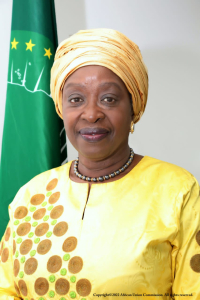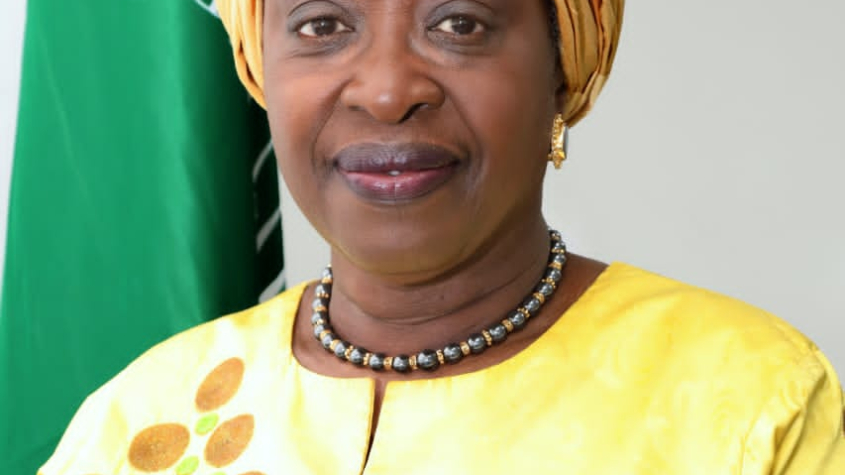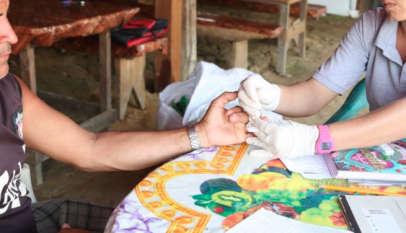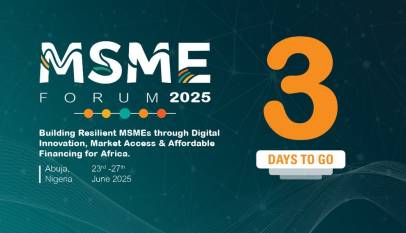INTERVIEW | How Africa sets world’s women, peace and security agenda – AU WPS Envoy
Since 2014, Mme. Bineta Diop has served as AU Special Envoy on Women, Peace and Security (WPS), advocating for the implementation of the continent’s WPS agenda and raising the voices of women and girls affected by conflicts. She speaks on how Africa’s pioneering WPS agenda is being copied by countries such as Canada and Norway and organisations like NATO.

Newspage: You initiated the Africa Forum on Women, Peace and Security (WPS) in 2020. What has the Forum achieved in terms of advancing the continent’s WPS agenda?
Mme. Diop: For me, the priority is to build a forum where all the WPS actors can come together and evaluate the implementation of WPS Action Plans at the national, regional, and continental levels. Therefore, when I started my mandate of bringing the voice of the voiceless, i.e., women, into the peace and security agenda of the continent, my focus was on ensuring the implementation of UNSCR 1325 and other relevant WPS policies by translating them into actions.
Then only 17 countries out of 55 on the entire continent had UNSCR 1325 National Action Plans (NAPs), most of which were countries in conflict who really understood the notion of women being major victims of conflicts. Thanks to our advocacy and engagement with the member states, we now have 35 countries in Africa that have developed and adopted their Action Plans on women, peace and security.
Beyond adopting a work plan, there is a need to have a committee at the national level overseeing the implementation of the NAPs. My office is also supporting member states in developing indicators for monitoring and evaluation, and so forth. Beyond having an action plan, we also saw the need for a continental results framework, which is an accountability tool for making sure member states implement their action plan.
The accountability mechanism comprises ministries of defense, gender and foreign affairs as well as security actors, women working in the area of peace and security, civil society, survivors and youths. The members of the accountability mechanisms are invited to the annual Forum in Addis Ababa to share experiences and prepare action plans. We always publish the reports provided by the member states as a way to measure our achievements and setbacks as well as promote best practices.
Interestingly, Africa was the first to have a special envoy on women, peace, and security, which has now been copied by Canada and Norway, among others. When we created the continental results framework, the North Atlantic Treaty Organization (NATO), which is concerned about the gender dimensions of security, also copied it. It is impressive that people are learning from Africa about women, peace and security. Of course, we have challenges and the Forum discussed these challenges.
Newspage: You said 35 out of 55 AU member states have developed and adapted their action plans. What progress has been made so far in terms of the implementation of the respective action plans? And what steps are you taking to encourage the remaining 20 member states to follow suit?
Mme. Diop: Another milestone that African women should be proud of is the fact that the Office of the Special Envoy (OSE) on WPS has now been institutionalized as an organ of the AU. Thus, its sustainability is guaranteed; it will continue to coordinate the implementation of Africa’s WPS agenda. This could also propel other member states to see the need to have such institutions in their countries.
I regularly engage with the member states who are not yet on board on the need to have their own WPS action plans through various entry points such as the AU Peace and Security Council (AU PSC), the Panel of the Wise, civil society forums, as well as engaging directly with the Regional Economic Communities (REC). I have also addressed the UN Security Council (UNSC) many times to bring visibility to what Africa is doing on WPS.
When I started engaging the Southern African Development Community (SADC) region, most of the countries said they didn’t need a WPS agenda because they weren’t at war. I, however, told them: ‘But you are sending male and female soldiers to operations, which means you need to apply the WPS resolution.’ This means training the women in a different way even though they have the same skills and also training your male soldiers to deal appropriately with female civilians.
We saw the impact of India bringing the first-ever all-women peacekeeping contingent to Liberia in 2007, such that the women civilians were comfortable dealing with them, unlike the male peacekeepers, who created a sense of fear among the women. Now, many SADC countries have action plans, starting with Namibia. I also told South Africa that even though they were not in a conflict situation, they get involved in mediation efforts, which means their diplomats need to be skilled in the WPS agenda to negotiate better.
So, it is about engaging and convincing member states to see the value in engaging with the WPS agenda and we are gradually building momentum. The Office of the Special Envoy is now working with UN Women to equip the member states with the necessary tools to understand their priorities and so on.
Newspage: Despite your pioneering efforts to get member states to implement the continent’s WPS agenda, African women are still relatively uninvolved in peace and mediation efforts. What do you think must be done to encourage the inclusion of women in these processes?
Mme. Diop: Globally, only nine peace agreements have been signed by women, while the percentage of women leading peace missions is barely 2%. The contradiction is that women are counted upon to build peace at the grassroots level. The first woman to sign a peace agreement in Africa was Theresa Leishman in the Akosombo peace talks, as a result of which Liberia’s Leymah Gbowee won the Nobel Peace Prize. It shows that when women are involved in peace processes, they can make a lot of difference.
Looking at the Al-Shabab insurgency in Somalia, although the African Union Mission to Somalia (AMISOM) defeated Al-Shabab militarily, we know that it takes more than military interventions to defeat the insurgency. We need to actively engage the community in the process under Track 3 of the WPS agenda. Therefore, we created a radio program through which we sensitized the Somali women in the border communities on how to provide intel whenever they witness unfamiliar and suspicious faces in their community.
The bottom line is that, as an integral part of the community, women understand their environments, and it is by working with them that we can defeat terrorists and terrorism. For that to happen, the women need mediation skills and to be organized into community watch squads. The fight for women’s inclusion in peace and security has been going on for a long time, and we have been successful a number of times.
For instance, we have succeeded in being given a space at the table in Burundi. The Burundian case with President Julius Nyerere and President Nelson Mandela was a long time ago. These were leaders who were gender-sensitive, which was because they knew the crucial role women played in the liberation movements and the fight against apartheid.
This was why we created the network of African women in conflict prevention and mediation known as FemWise-Africa, even though we are still struggling with having them deployed to support mediation teams. Yet, this is not enough. What we need is a critical mass of women in the military and government to enhance women’s participation in not just peace mediation efforts but leadership in general.
To this end, we also created the African Women Leaders Network (AWLN) to engage with both young women and men. This is because, since it is a societal issue, we cannot engage women only without involving men as well. This was what inspired the #HeforShe campaign to promote the idea of positive masculinity. Coming back to your question, we should make sure the Track 3 table of the WPS agenda is set by women and becomes the real table, not just the Track 1 table set by men.
We need to demonstrate that the table set by women also works. It is a fight about changing mindsets, it’s about changing narratives. And that’s why we need the media to change these narratives, because the African context is very different. It requires creating innovative solutions and implementing things in a different way. This is what my office has been doing with the support of our member states.
Newspage: The OSE has invested a lot in implementing Africa’s WPS agenda. Beyond your term of office, what measures are you putting in place to ensure that the foundation you have laid is sustained and built upon?
Mme. Diop: The ongoing AU reforms will ensure that the office remains. Our major challenge is that we don’t have lots of resources and are facing three major new threats that are further exacerbating violence against women, i.e., the 3Cs, namely the Covid-19 pandemic, which heightened violence against women. Covid-19 was both a health and a security threat.
The second is climate change, which is also a major challenge that women continue to bear, especially in the Lake Chad basin. The third is the conflict in Ukraine, which creates a food, fuel and finance crisis that is exacerbating violence against women. Therefore, it is very important to continuously engage the people on WPS. We will have to be the ones to create peace, silence the guns, as well as prevent conflicts.
When we see a crisis coming, we don’t have to wait until it’s too late. Young people, women and community leaders should engage and prevent it. Now, the military and constitutional coups are back. We are already grappling with bad governance and corruption. Africa needs a holistic human security agenda that ensures young people have jobs, health, and education; one that is linked to our development and economic transformation agendas.
This interview has been edited for length and clarity














